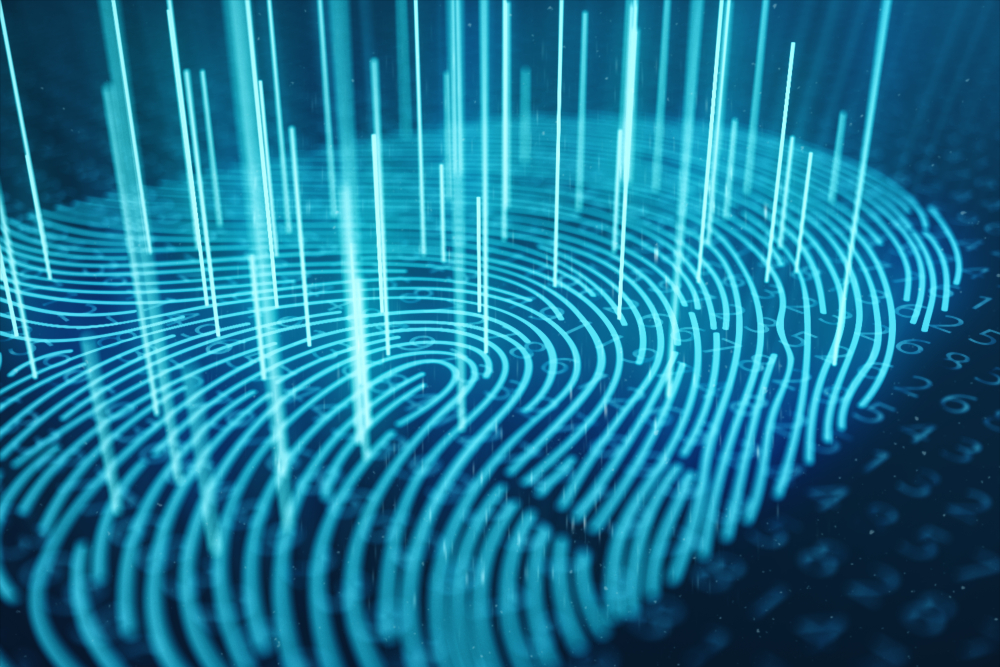
You can delete 99 percent of your digital footprint but the question is… should you do that?
Robert Siciliano, security expert ar Porch.com confirms that it is indeed possible to “disappear” from the internet if this is what you want. However, he warns that an undo option for this process doesn’t exist. For instance, once you’ve deleted all your emails from an account you’re not using anymore, there’s no way back.
Sue Scheff, author of Shame Nation: The Global Epidemic of Online Hate, advises people to think twice before completely removing themselves from the internet. Don’t forget that human-resource departments and college-admissions offices are usually utilizing social media platforms o examine their candidates.
“If someone goes off-grid, this can be held against them. Companies will believe they either have an alias or maybe they aren’t that tech-savvy,” she explains. “For students, their admission spot could go to someone who has an online presence that showcases their attributes.”
If you know all of the things we’ve previously mentioned and still want to erase yourself completely from the internet, stop Google and Facebook from knowing every little detail about your life (what you search and purchase online) or you’ve simply had unfortunate experiences with identity theft and cybercrime, follow the steps below and erase 99 percent of your digital footprint.
Make sure you are removed completely from data-broker services
“Like credit-reporting agencies, these brokers never seek our permission or approval to collect our personal information, yet they do while also profiting from it. There are firms out there specializing in brand management (notably, Delete Me) that will charge for annual ‘protection plans’ and guarantee removal of one’s personal data from such data-broker services.” —Armond Çağlar, principal consultant with Liberty Advisor Group.
Make sure to delete your old email accounts you’re not using anymore
“Deleting old email accounts requires an accurate username and password to first get into the account. However, not everyone remembers their email password to an account they used ten years ago. For this reason, you have to reach out to the email service provider to request credentials to the account. Some email service providers like MSN or Yahoo will automatically delete email accounts if they are not used over a set amount of time. Otherwise, you’ll have to manually get into the account to delete it permanently.” —Jeff Romero, co-founder of Octiv Digital.
Make sure to delete your old accounts even if you don’t want to completely remove yourself from the Internet
“Email accounts are a treasure trove for sensitive personal data, and they may provide the ability for hackers to reset passwords on third-party services that users have completely forgotten about. This could grant them access to those services and give them the ability to access further information, which could later be used to launch phishing campaigns to extract further information from those victims.” —Jo O’Reilly, Deputy Editor at ProPrivacy.com.
Say bye-bye to apps
“We love free apps, but we have to remember downloading these applications is still a transaction where we are agreeing to give these companies our personal data, such as online habits and location information in the exchange. Once that information is out there, it is gone and even likely sold to other companies.” —Çağlar.
Make sure to only use privacy-protected platforms
“After deleting old accounts, if you want to continue flying under the radar, I would recommend using a platform like the Brave Browser for general Web surfing and use search engines like Duck Duck Go whenever possible. Both of these platforms are built on protecting privacy.” —Alexander Kehoe, co-founder and Operations Director of Caveni SEO Solutions.
Make sure to delete every single one of your social media accounts
“You’ll have to log in to all social media profiles to permanently remove them. All of the major networks like Facebook, Instagram, Twitter, and TikTok claim to erase your information as soon as the account is deleted. While we may not know if this is true, the best thing we (consumers of these platforms) can do is to delete the accounts and be sure there are no other active accounts. Once deleted, the information may take a few weeks before it’s removed from Google search results.” —Romero

Forgo convenience
“The only way to really prevent unauthorized personal data from appearing online would require a fundamental lifestyle change—one that few can afford to make in a highly connected world. This would mean the possibility of sacrificing such modern conveniences as participating in e-commerce and utilizing online bill payments.” —Çağlar.
Set some boundaries in your Web browser
“Begin by deleting all cookies and cached information from every Web browser you use. This will essentially perform a reset for the browser. Next, use the browser’s cookie settings to let websites know you do not want to be tracked. This may lead to functionality on some websites not working, but it will ensure you are not tracked.” —Romero.
Don’t allow apps to access your location all the time
“Today, many of the apps we use will ask for access to your location or contacts in your phone before allowing you to use the app. Yelp, for example, will ask for your location to source nearby restaurant selections; however, Yelp will continue to track your location so long as it is being allowed. One way to prevent this is by switching from ‘Always Allow’ to ‘While Using the App.’” —Muneeb Ali, CEO of Blockstack.
Pay close attention to Facebook single sign-ins
“Facebook has made it easier than ever to use the Internet and has conveniently set up ‘Log in with Facebook’ on other applications. If you have ever used this feature in lieu of creating an account, the information collected and stored on those sites is fed into Facebook. Considering that Facebook faces data breaches regularly, this means that your personal data may be leaked from more than one website. It is important to segregate these accounts and create unique passwords in order to make it harder for your personal information to be leaked.” —Ali

Delete your home address from any app
“This is harder than it sounds. Ideally, you need to establish a CMA (commercial mail agency) address and change everything to this address and stop using your home address for ANY correspondence. This includes any bills, bank accounts, credit card accounts, and even your driver’s license. Any of your financial accounts will report your address to the three main credit-reporting agencies, and after a couple of months, they should all be aware of your change of address. Then you need to dispute your old home address with all three agencies until they remove it from your record.” —Bobby Casey, founder of Global Wealth Protection
Don’t forget to unsubscribe from newsletters
“Do you have online accounts with shopping services or magazines such as Amazon, the Washington Post, or eBay? Maybe you left reviews? Be sure to not only close your online accounts but also unsubscribe from all mailings—not just for these sites but from all other shopping or online publications you were receiving.” —Scheff
Always use ad blockers
“This will stop you from signing up for promotions, newsletters, and phishing schemes where they gather your details and can use them against you.” —Scott Krieger, Web developer and cybersecurity expert.
Don’t forget to use the Wayback Machine
“Check the [digital archive] Wayback Machine for your online history. I actually did this, and when I saw dated and erroneous information, I emailed them to kindly remove it. You can connect at info@archive.org. They were prompt to respond—and complied.” —Scheff
Use a VPN
“While clearing your local Web-browsing history will ensure that nobody can look on your machine to see what you have been searching for (the same is true of searching using Google Incognito mode or Firefox Private Browsing mode), this will not stop your ISP from retaining a record of those Web visits. In order to access the Internet, everybody’s Web traffic must pass through their Internet Service Provider’s servers. This allows the ISP to know exactly what websites you have visited. Thus, deleting your Web history locally does not stop your ISP from having the entire list of Web-browsing habits. And depending on where you live, the ISP may be collecting that Web-browsing history and all your digital communications’ metadata in order to hand it to government authorities.”
“Thus, in order to actually ensure that your online privacy is maintained, it is vital to use a Virtual Private Network (VPN) at all times. A VPN encrypts all the data coming and going from your devices so that it is scrambled as it passes through the ISP servers. This completely removes the ability of the ISP to know which websites you are visiting.” —O’Reilly.
Be aware of cybersecurity
“People should run anti-virus and other software to ensure their laptops, tablets, and mobile phones have not been hacked (especially in the event of a breach). They should also take measures to change their passwords across their email, financial, and social media accounts—and that they are using passwords which are extremely difficult with a variety of letters, numbers, and special characters. They should also keep a close watch on their financial accounts and credit, and consider putting a block on credit requests or inbound requests for credit.” —Paul Lipman, CEO of consumer cybersecurity company BullGuard.
Make sure to search for “Account Settings” pages
“Get to know the Account Settings sections for major providers like Google and Apple. Here, you can delete entire search histories, stored private data, and any associated email accounts. Tread lightly, though, as these actions will be permanent and have potentially undesirable consequences. Deleting your entire email history and account could make it more difficult to communicate with family and friends. Deleting search histories could make it more cumbersome to do future Internet searches. The same goes for the major social media networks, though steps here might be a little more convoluted. Most major sites will give you the option to download this information before deleting, so you can keep any details you need here on your personal computer.” —Lisa Plaggemier, Chief Strategist at MediaPRO.











































